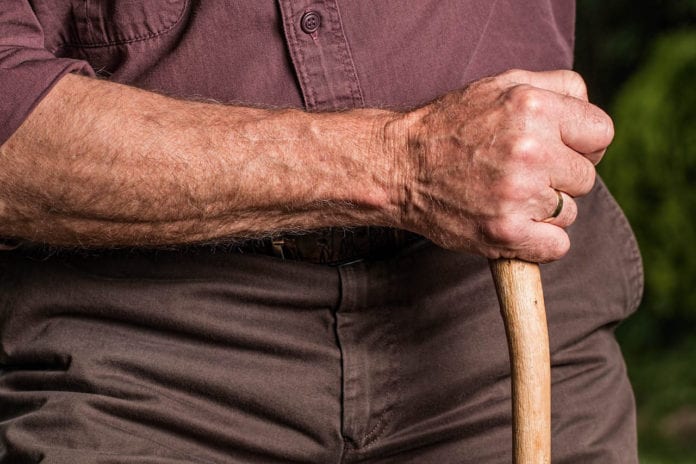For many older adults, there’s no place like home. However, 80% of older adults live with at least one chronic condition, and 50% live with two or more. Managing these conditions can be challenging for older adults and may limit their ability to live independently as they age. Poorly controlled chronic illness can lead to dramatic changes in health, emergency room visits, hospitalization, complex treatments, and high costs. Nursing research is developing new technologies to help older adults maintain their health as they age in place in their homes and communities, instead of moving to a nursing home as their health care needs change.
A Solution From Nursing Research: Intelligent Monitoring System Detects Early Signs of Illness
Nurse scientists have developed a new technology that may help older adults manage their health, and remain independent. A team of nurses, social workers, physicians, informatics experts, and engineers led by Dr. Marilyn Rantz have created an intelligent sensor system which monitors health-related symptoms of older adults and sends alerts to health care providers when it detects early warning signs of a potential health issue. By using the system, older adults may be able to remain in an independent living environment, staying healthy and active for longer, with the confidence that health problems will be recognized and addressed early.
How Does it Work?
The intelligent sensor system uses motion detectors, fall and fall risk sensors, stove monitors, and bed sensors to discreetly monitor pulse, breathing, and restlessness. By installing these inexpensive sensors throughout the living environment, the system can detect changes in health status without the need to actively use or wear a device. When the sensors detect potential health-related problems, the information from these devices is sent to the nurse via a web-based interface. When the nurse receives an alert, he or she can step in early to evaluate a potential problem and decide whether intervention is needed.
Dr. Rantz and the Eldertech Research team at the University of Missouri tested the sensor system in specially designed senior apartments in an assisted living facility and found that the system could detect changes in chronic or acute illnesses 10 -14 days before the usual assessment by a health care provider or the adult self-reported illness. The nurses who received the automated alerts found the web-based interface to be user-friendly and found the alerts to be easy to interpret and clinically relevant. Older adults who had the sensors installed in their apartments experienced improvements in functional abilities such as walking or gripping with their hands, important abilities for older adults who want to remain more independent for longer.
What’s Next?
Dr. Rantz and her team are conducting ongoing studies to further improve the sensors and alerts and assess the clinical effectiveness and cost effectiveness of this early warning system. Although it has had limited testing in the home, this innovative technology holds the potential to improve quality of life for older adults with chronic illness, and may even be able to delay the transition to nursing home care and reduce spending on hospital stays. By alerting providers to changes in health status earlier, older adults can receive earlier treatment, experience better health outcomes, and maximize their independence. This fall, they are launching TigerPlace@Home, a new community service to help elders in mid-Missouri live at home independently and healthy with the help of the sensors and nurse care coordination.


